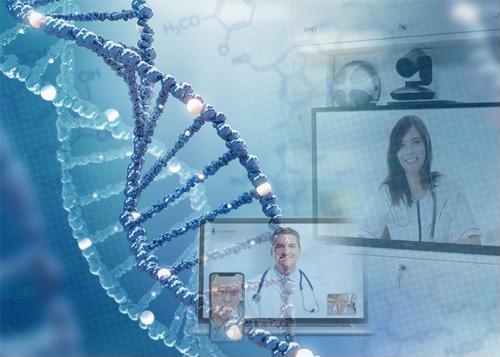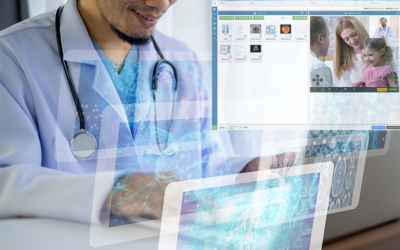Doctors and nurse practitioners alike are constantly looking for new ways to provide patients with the best care possible, all while keeping them comfortable and reducing the costs of medical assistance. Genetic counseling is one way to provide in-person consultations for patients who want more information about their genes, but some may consider this direct interaction uncomfortable, costly and inconvenient.
Thankfully, genetic testing via telehealth can provide patients with the same information, but perhaps in a more useful, convenient and affordable way.
What is genetic testing?
According to the Genetics Home Reference’s Guide to Understanding Genetic Conditions, genetic testing is defined as a medical analysis that can identify the transformation of chromosomes, genes or proteins. With genetic testing, medical professionals can help rule out potential conditions and determine the chances of developing or passing on a disorder. Before undergoing genetic testing, patients can receive counseling, where health care professionals provide advice about the consequences that come with developing or transmitting genetic conditions.
 Genetic counseling via video can provide patients with helpful and convenient access to care.
Genetic counseling via video can provide patients with helpful and convenient access to care.
How can telehealth impact the outcomes of genetic testing?
While counseling can be beneficial for those who test susceptible to genetic disorders, only 37 percent of people meet with a medical professional for advice before testing, according to Clinical Innovation + Technology.
But research by the University of Pennsylvania School of Medicine found that telemedicine services could increase the amount of people who are willing to utilize genetic counseling and testing services. Exactly 77 percent of the participants offered genetic counseling via telehealth first went on to use the counseling services, while only six percent of patients went to a remote location to receive care. Additionally, 56 percent of the patients who underwent counseling via telemedicine subsequently received the genetic testing, while only 17 percent of patients who used remote counseling went on to the testing portion.
“The data definitively shows the impact of remote genetic services, and it’s clear from this study that this telemedicine approach improves on what community practices can do on their own,” said Dr. Angela Bradbury, assistant professor of Hematology and lead author of the study said.
Offering counseling services via telemedicine not only offers patients a more convenient route to care. It also speeds up diagnosis, can improve patient outcomes and reduces the overall care costs, according to Healthcare Informatics.
If you want to improve genetic testing and counseling at your hospital or facility, telehealth services may be the answer. Convenient and helpful resources like telemedicine can provide your patients with the proper treatment they need in an honest, trustworthy setting. Telehealth can help patients rule out genetic conditions or even reduce their risk of developing or passing a disorder in the future. For more information about utilizing telehealth solutions in your hospital, contact AMD Global Telemedicine today.





